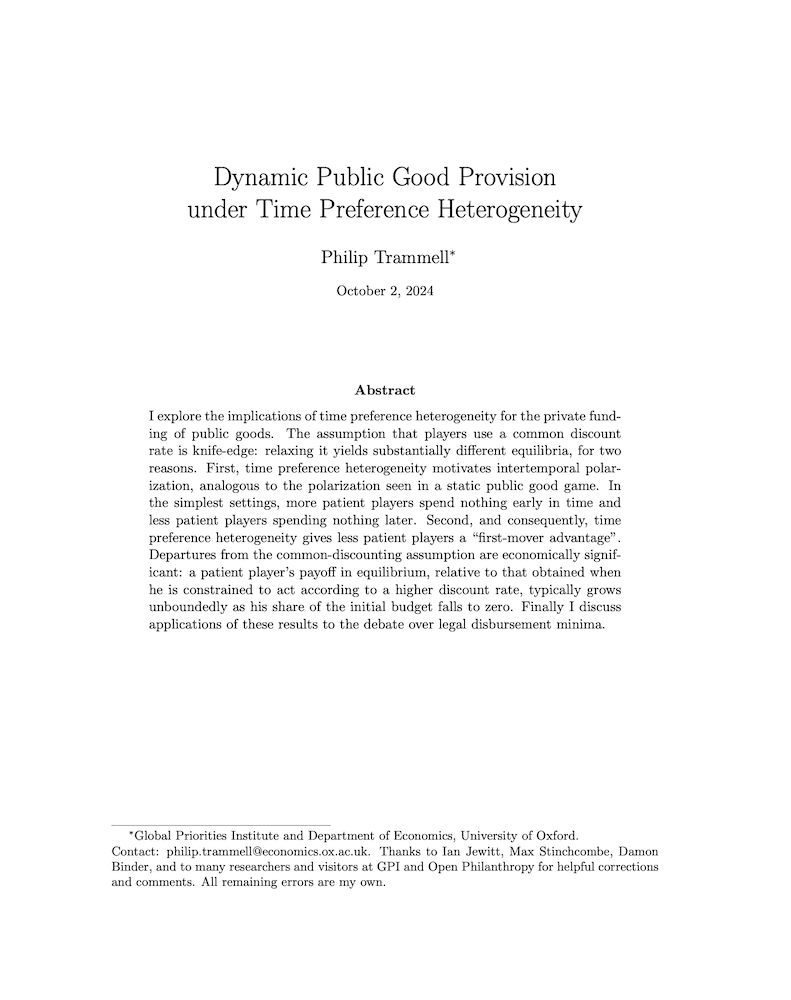Dynamic public good provision under time preference heterogeneity
Philip Trammell (Global Priorities Institute and Department of Economics, University of Oxford)
GPI Working Paper No. 9-2021
I explore the implications of time preference heterogeneity for the private funding of public goods. The assumption that players use a common discount rate is knife-edge: relaxing it yields substantially different equilibria, for two reasons. First, time preference heterogeneity motivates intertemporal polarization, analogous to the polarization seen in a static public good game. In the simplest settings, more patient players spend nothing early in time and less patient players spending nothing later. Second, and consequently, time preference heterogeneity gives less patient players a “first-mover advantage”. Departures from the common-discounting assumption are economically significant: a patient player’s payoff in equilibrium, relative to that obtained when he is constrained to act according to a higher discount rate, typically grows unboundedly as his share of the initial budget falls to zero. Finally I discuss applications of these results to the debate over legal disbursement minima.
Other working papers
The unexpected value of the future – Hayden Wilkinson (Global Priorities Institute, University of Oxford)
Various philosophers accept moral views that are impartial, additive, and risk-neutral with respect to betterness. But, if that risk neutrality is spelt out according to expected value theory alone, such views face a dire reductio ad absurdum. If the expected sum of value in humanity’s future is undefined—if, e.g., the probability distribution over possible values of the future resembles the Pasadena game, or a Cauchy distribution—then those views say that no real-world option is ever better than any other. And, as I argue…
Are we living at the hinge of history? – William MacAskill (Global Priorities Institute, Oxford University)
In the final pages of On What Matters, Volume II, Derek Parfit comments: ‘We live during the hinge of history… If we act wisely in the next few centuries, humanity will survive its most dangerous and decisive period… What now matters most is that we avoid ending human history.’ This passage echoes Parfit’s comment, in Reasons and Persons, that ‘the next few centuries will be the most important in human history’. …
On two arguments for Fanaticism – Jeffrey Sanford Russell (University of Southern California)
Should we make significant sacrifices to ever-so-slightly lower the chance of extremely bad outcomes, or to ever-so-slightly raise the chance of extremely good outcomes? Fanaticism says yes: for every bad outcome, there is a tiny chance of of extreme disaster that is even worse, and for every good outcome, there is a tiny chance of an enormous good that is even better.

